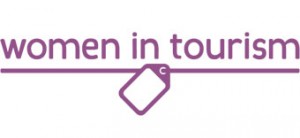WIT Wisdom: Why Businesses Need to Embrace Diversity
For this month’s WIT Wisdom, top management and leadership coach Ros Taylor shares her insights into the under-representation of women in the boardroom, and offers her take on how companies can become more effective (and successful) by embracing diversity.
As Ros Taylor identifies, it’s not just women who are losing out, but businesses are too. In her article, published in Management Today, which we are delighted to share in the Women in Tourism blog, Ros Taylor highlights five ways we can all help female high-fliers make it to the boardroom.
Interestingly it’s mainly behaviour patterns, and the good news is that behaviours can be changed, and it should be down to everyone who truly cares about diversity to champion and lead the way. Read on for Ros’s insights.
‘I was saddened and disappointed – but I have to admit, not surprised – to read recent reports that the UK’s largest companies are still failing to meet government targets to improve gender equality.
Figures recently released by the Hampton-Alexander review, a government initiative to tackle UK corporate gender inequality, show that FTSE 350 companies remain far short of the target to have 33% female boardrooms and – shockingly – 10 firms still have all-male boards.
Across FTSE 350 companies, women only make up only 25.5% of directors. The review also named and shamed 10 ‘dark ages’ companies who have failed to appoint any women to the top table two years after the 33% target was set. Companies include such household names as Sports Direct and the Stobart Group.
In this day and age, and given the gender equality profile in recent times, it’s unacceptable that women are not seen enough around boardroom tables, which too often still resemble an alumni gathering of boys’ public schools.
It’s not just women who are losing out, but businesses, the economy and society in general. To be effective, company boards must be diverse, and not just in gender but in other ways too, for example, age and background. Only when there is true diversity will board members challenge each other and come up with new ways of thinking and innovative ideas that allow companies to flourish.
I say I’m not surprised by the fact that women are still vastly underrepresented on boards because I’ve witnessed a lack of women at many business events I attend. And in my work as a leadership facilitator and coach I’m increasingly aware of a reticence among females to push themselves forward.
I delivered a talk to mark this year’s International Women’s day called ‘Come to the Front’ to highlight the tendency that I’ve noticed for my female peers to prefer to remain at the back of these gatherings. They lurk around the periphery while men tend to be happy to take prime position right at the front.
I mention this observation because not coming to the front seems a telling symbol of how women often behave at work: head down, focus on delivery, praising the team not themselves.
If women are unwilling to put themselves forward and be seen for their skills and achievements, it’s unlikely that they will ever be fairly represented on boards. But we shouldn’t accept the status quo – it can be changed.
Through working with senior management teams, I have identified five behaviour patterns that can be altered to encourage diversity.
Please read these and act now to make the world a more diverse, and interesting, place:
FIND WAYS TO DIMINISH THE POWER OF SIMILARITY
We tend to appoint and promote those demographically and philosophically similar to ourselves because ‘people like us’ fit in with our way of thinking.
To counter this, leaders must embrace 360-degree feedback and engagement surveys to build an information-based recruitment and development programme. Promotions should be weighed against excellence in performance, based on benchmarked individual contributions to the organisation.
ENCOURAGE WOMEN TO TAKE THE GLORY
Ask an employee of each gender to make an acceptance speech for the same successfully completed project, and the man is more likely to pepper his speech with ‘I’s, while the woman will play to the acknowledgments of the team. This lack of ego contributes to women being overlooked for promotion and being less successful at salary negotiation.
Consider benchmarking salaries and encourage female employees to take credit where it’s due and be politely persistent when it comes to seeking the rewards they deserve.
USE PSYCHOMETRIC TESTING
The latest psychometric tools can help you understand skills and diversity in more scientific ways. Psychometrics enable diversity of contribution to be more visible and can be implemented in all sizes of businesses. Feedback from such tests enable interesting conversations around individual strengths and help evidence-based hires and promotions.
TRAIN PEOPLE TO TOLERATE FEELING UNCOMFORTABLE
Differing views lead to uncomfortable conversations. But that’s a good thing. Build an organisation where differing thoughts and opinions come through in focused ways, and you’ll open the door to high-performance, innovation and loyalty. Listening helps.
Teach people to disagree in a rational way without ire or confrontation.
DISCOVER NEW WAYS TO LEAD
A command and control leadership style is not effective in the modern work environment and is detrimental to women. Typified by layers of autocracy, power through control, and promotion through contacts rather than feedback, even the military don’t work like this anymore!
Develop leadership programmes which encourage a diverse range of people to find their voice, speak up and be counted.’
Ros Taylor is the founder and Chief Executive of leadership firm Ros Taylor Company.
Want to hear more news and views from Women in Tourism? Sign up for our newsletter.










